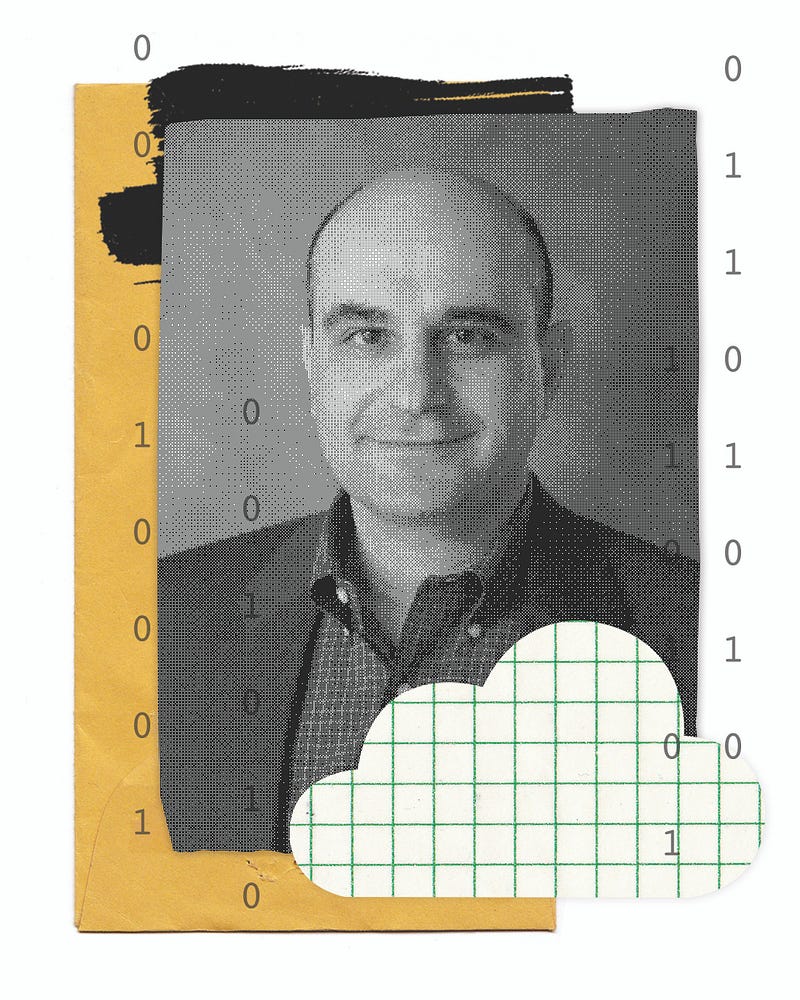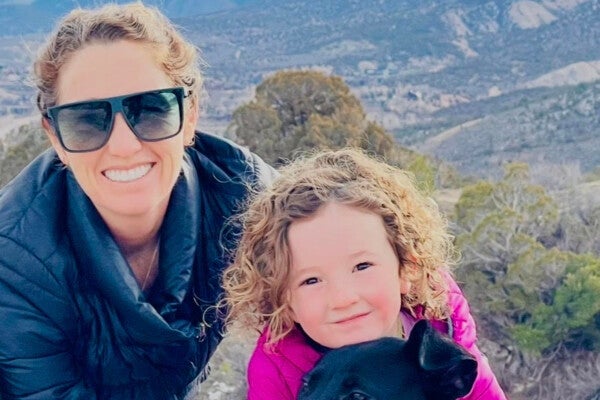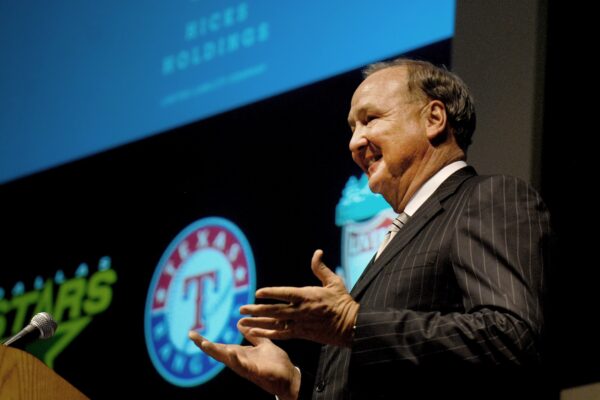Head in the Cloud
Emil Sayegh, MSTC ’96, discusses the past, present, and future of cloud computing
By London Gibson

Emil Sayegh got into cloud computing very early. He was working for Rackspace in 2006 when the cloud computing industry was just getting started, and he quickly got in the game, eventually building the company’s cloud business to a value of more than $100 million in yearly revenues.
Sayegh also spearheaded cloud businesses for HP Inc. and Codero, and co-founded OpenStack, a free platform for cloud computing available to developers around the world.
The current president and CEO of the cloud company Hostway in Austin, Sayegh recently led the merger of Hostway and Hosting in one of the largest mergers in the cloud industry. He talked about his career and the past, present, and future of cloud computing with McCombs.
Have you had to take risks to get where you are today?
I was in the first wave of people to get into the cloud. It was the road less traveled, for sure, but you’ve got to cut your own path. When you do that, there are benefits. There are also risks. But when you experience a program like the McCombs Master of Science in Technology Commercialization, you learn how to deal with those risks.
Your self-assurance in terms of how to tackle business problems grows exponentially. You’re able to make decisions a lot faster. You’re learning from other people’s experiences in the classroom. They’ve been through the same kinds of challenges you have been. So, you’re learning from the professors, you’re learning from the career counselors, and you’re learning from your peers.
What’s the current state of business computing?
In the last five years, businesses have rushed to move their applications to the public cloud. But I think it’s important for them to be careful and look at the type of data and the type of applications they are moving. Certain applications belong in the cloud, and other applications belong in traditional computing.
One example of what shouldn’t be on the cloud is personal health care information, for security and compliance reasons. For databases, it’s for performance reasons. Databases run better on what we call bare metal, on a traditional server, versus running in a virtualized environment that sits in the cloud. They run much better, more efficiently, and less expensively.
When you put an application that is not suited for the cloud in the cloud, two things are going to happen. You’re going to pay a lot more than putting it on traditional infrastructure. Or you’re going to have security and privacy risks.
What’s new in cloud computing?
Currently a lot of people run servers themselves — in their offices or in co-location facilities. Others run completely on something like Amazon Web Services or Azure or the Google Cloud — completely in the public cloud. And then a third way is to use somebody else’s data centers, like Hostway’s data centers.
What we’re seeing right now is the pendulum swinging to something that’s called the hybrid- or multi-cloud. This is where you have customers that are actually using all three ways. They’re putting some stuff with us, they’re putting some stuff in the public cloud, they’re keeping some stuff on their site, but then needing someone like us to manage it all together seamlessly. They’re able to move data from one environment to the next. Companies are starting to take this hybrid approach because of cost, performance, and compliance with security and privacy laws all around the world.
How do you envision the industry’s future?
In the next few years, artificial intelligence capabilities are going to explode. You put your data in the cloud, and all of a sudden, you’re going to be able to visualize that data in ways you didn’t even dream possible. Artificial intelligence is going to give us the ability to sort and look at the data to make faster and more precise decisions.
How do you handle difficult situations?
There are going to be challenges. Nothing worthwhile comes without them. The thing that you need to keep in mind is to know and believe that you will overcome them and get to where you want to be. You overcome challenges by, frankly, learning from others and having good judgment, and these things get developed through education and life experience.
This article appeared in the spring 2019 issue of McCombs magazine. Click on the link to see the full issue.
About this Post
Share:


